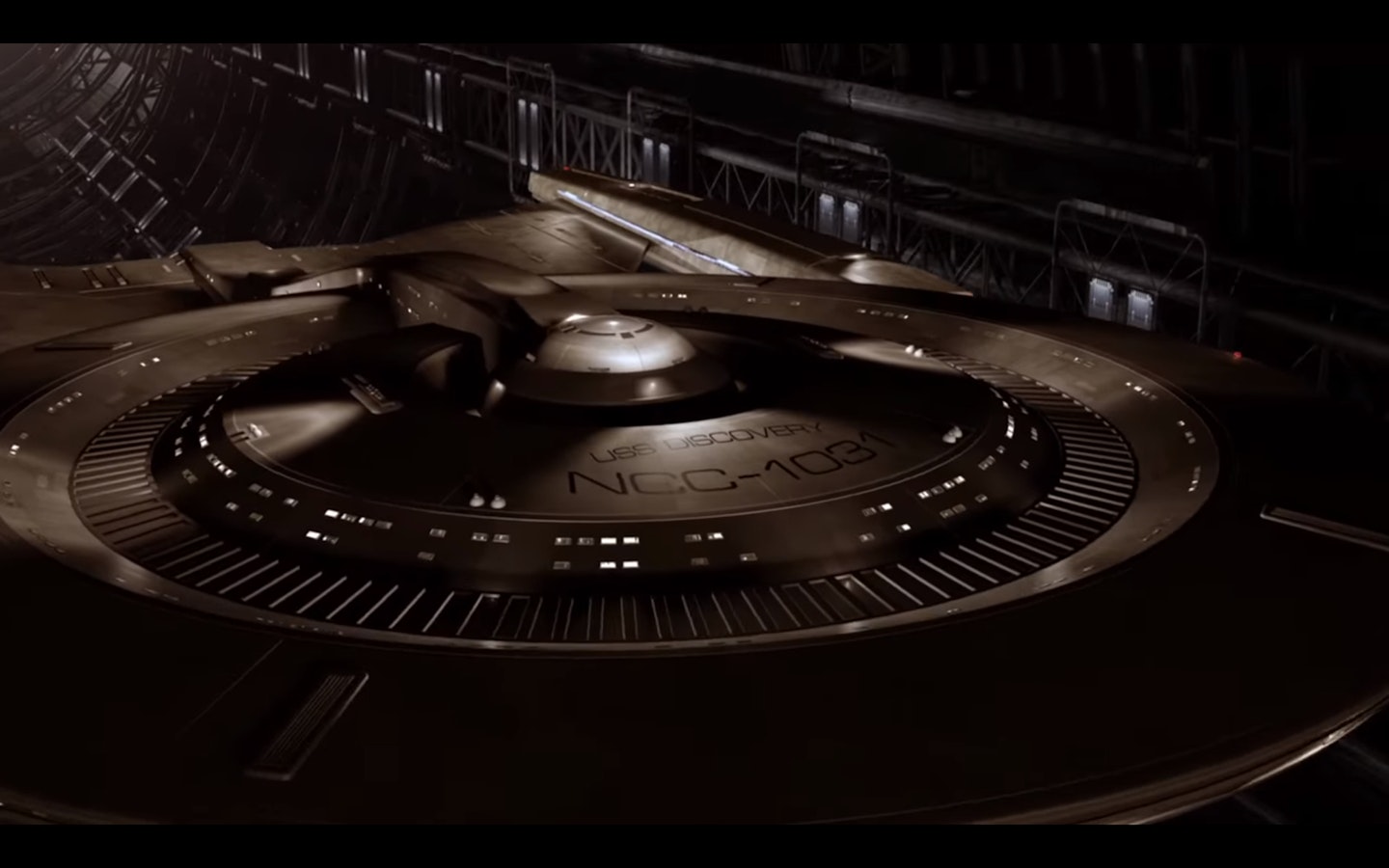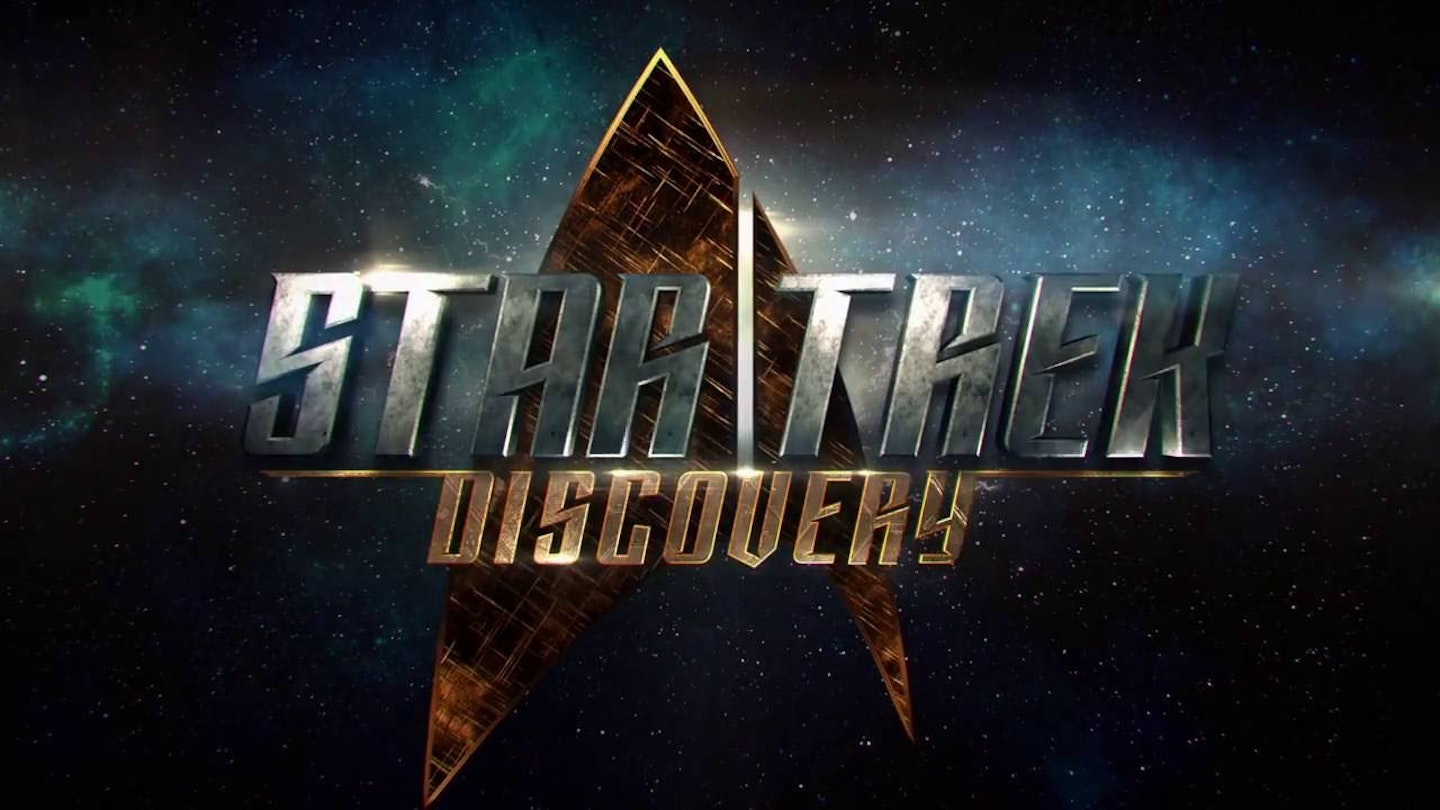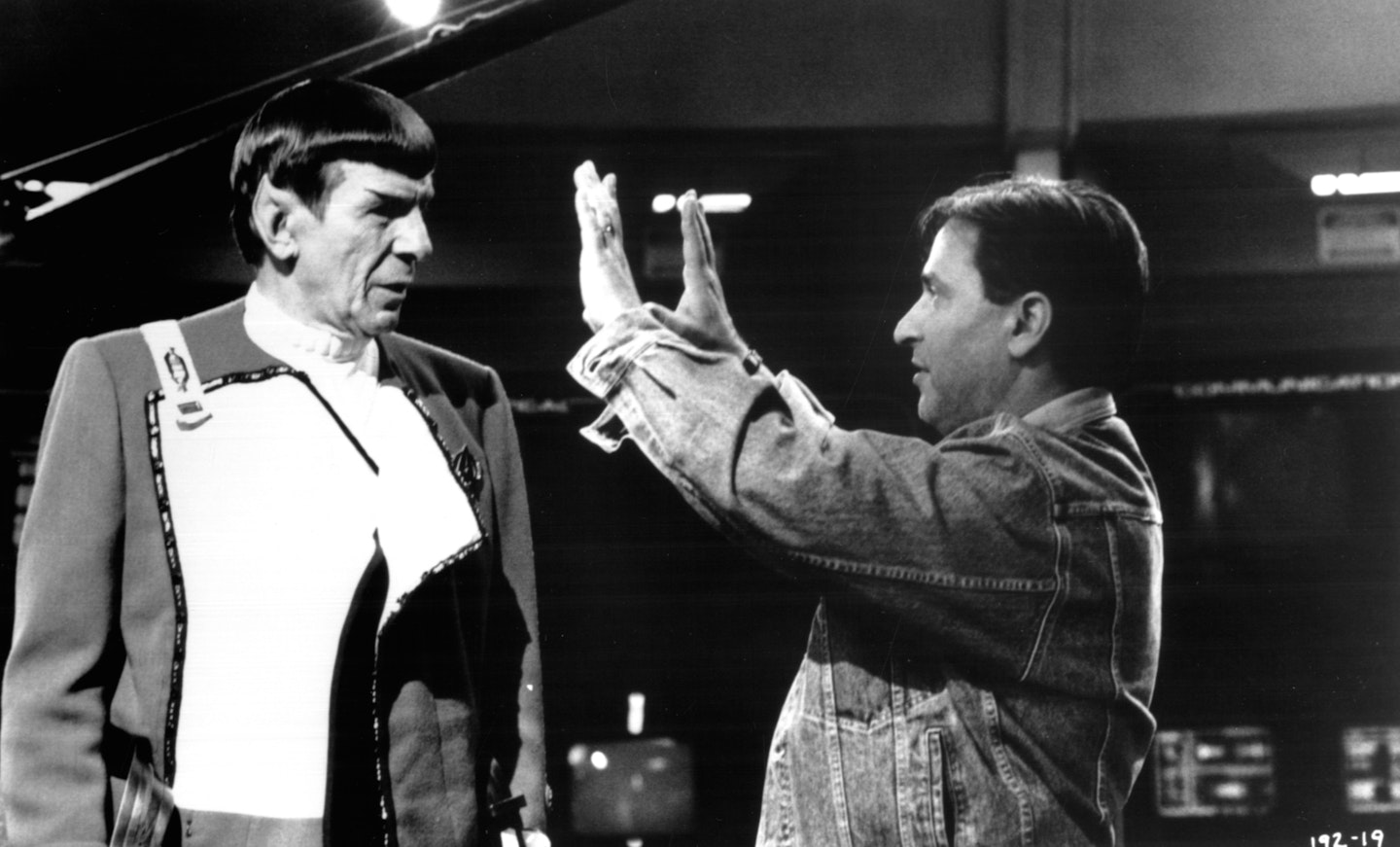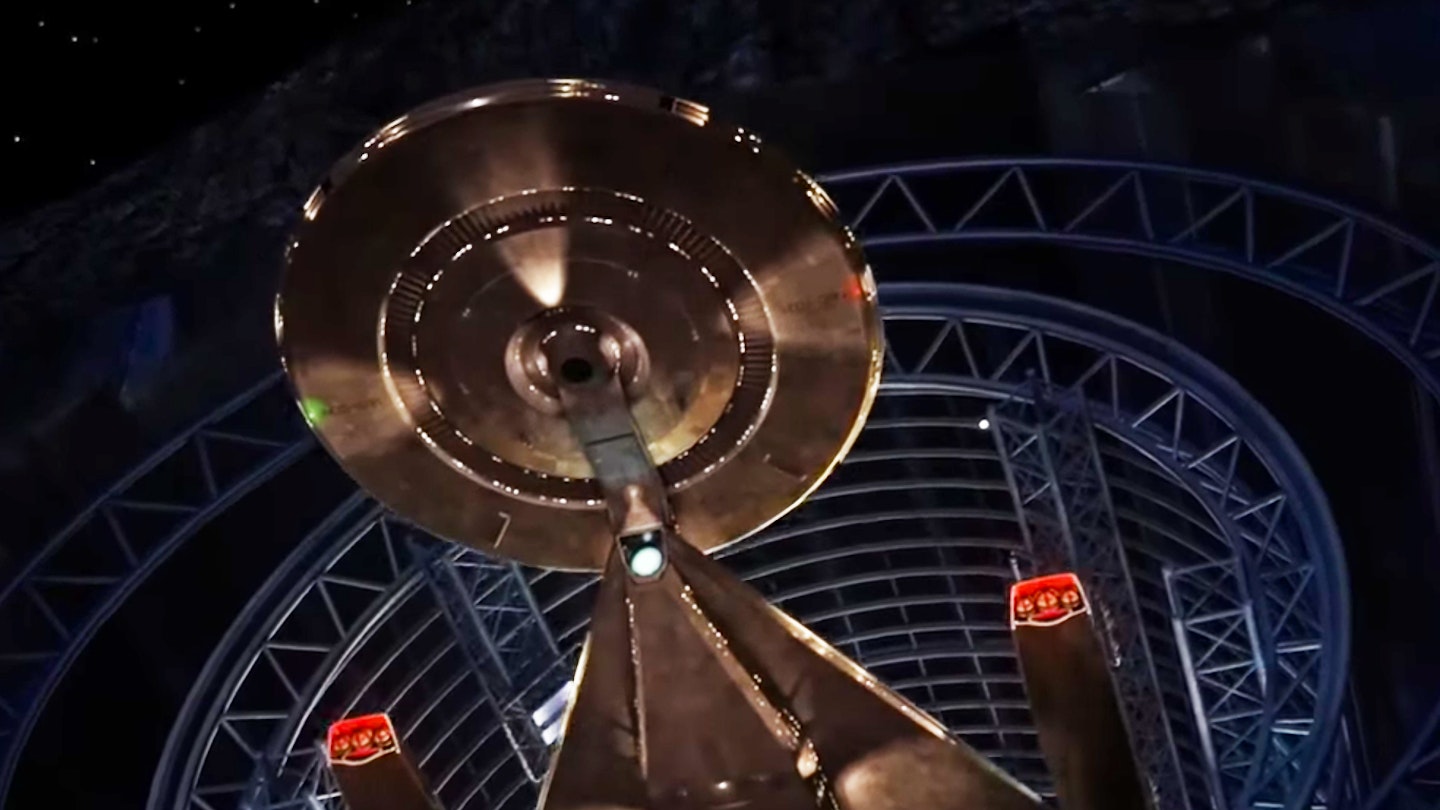The Star Trek convention Mission New York was held over Labor Day Weekend, and while the majority of the event saw actors from previous iterations of Trek hit the stage to entertain thousands of gathered fans, there was a single panel devoted to the forthcoming Star Trek: Discovery, from which 10 revelations were made.
1. Origin of the series’ title
Bryan Fuller (co-creator/executive producer): Star Trek: Discovery is about a journey into the best of what humanity has to offer, and that we are at our best when we are discovering. The ship is called Discovery for a few reasons, not the least of which is Stanley Kubrick’s contribution with Discovery in 2001, NASA’s vessel the Discovery, and also the [general] sense of discovery. There’s also what the word discovery means to the audiences who have been promised a future by Gene Roddenberry where we come together as a planet and seek brand new worlds and alien races to explore and understand and collaborate with.
2. Reinterpreting the known universe
Fuller: One of the wonderful things about being able to produce a brand new iteration of Star Trek is the opportunity to reinvent, re-explore and reintroduce alien races that you may be familiar with as a Star Trek audience, but also introduce brand new aliens and brand new planets and brand new ships that you haven’t seen before.

3. The sense of optimism will continue
Alex Kurtzman (co-creator/executive producer): Star Trek was originally pitched as Wagon Train to the stars and was always about exploring frontiers with hope and possibility. We were in the middle of the Cold War when Star Trek came out and there was a Russian on the bridge. Roddenberry made a huge point in choosing a character like Chekov as his way of saying that things will get better. Star Trek transcends the barriers of language and ethnicity and has been able to go on for fifty years because it speaks for everybody. One of the most important things that Gene Roddenberry brought to it was humanity.
Fuller: Star Trek is part of this fantastic legacy that paints a future where we’re going to band together as as species and make the galaxy a better place.
4. The reason it’s set ten years pre-TOS
Nicholas Meyer (consulting producer): It’s about finding a space in the chronology where there’s room to maneuver and create stuff. What Bryan didn't want to do is use the same characters that had been in other series and iterations, so he looked and found this opening. I’m familiar with this, because I’ve written three Sherlock Holmes novels and I’m always looking for gaps in the Holmes chronology where I can reasonably fit in somewhere. That ten year pre-Kirk thing seemed perfect. I must say, I thought it was pretty clever.
5. Why the series' POV is not the captain's
Fuller: There have been six different Star Trek series, all told from the captains’ perspective. For this new iteration of Star Trek, we wanted to look at life on a Starfleet vessel from a different perspective, so we introduce a character [Number One] who’s not a captain, but is going to be interacting with the crew in a whole new dynamic that gave us the opportunity to tell an original and complicated story about life on a Starfleet vessel.
Kirsten Beyer (writer): The challege in the past is that Star Trek [besides Deep Space Nine] was not serialized. They had to portray character growth and devleopment, while at the end of the story all of the toys had to go back in the box. Just the fact that we have thirteen hours to tell a story means that it's going to be less of an issue. We're definitely taking the time to go for that depth and that growth that wasn't necessarily possible in episodic shows.

6. New director named
While it had previously been announced that David Semel was serving as director of the show’s premiere episode, it was revealed that episode two will be directed by Vincenzo Natali, whose credits include the features Cube (1997) and Splice (2009).
7. Novels and comics are being created in conjunction with the series
Beyer, who made her name writing a string of highly-successful Voyager novels, announced that frequent Trek author David Mack will be writing a novel based on Discovery, and that IDW will be publishing a comic that she will collaborate with writer Mike Johnson on. The difference between this publishing program from most others is that rather than being published after the series has begun airing, and having little continuity to it, the novels and the comics will be intertwined with the show.
8. Fans should “lower their expectations”
Meyer: If you carry on [with such high expectations] not only is there an inordinate pressure on those doing it, but you’re also putting pressure on yourselves that will almost inevitably lead to some disappointment. You can’t please everybody and you can’t please everybody all of the time. Art is not done by committee. With all due respect, fans do not know what is best for them. People told me I couldn’t kill Spock and I said, “It’s not a question of if you kill him, it’s if you kill him well.” If it’s perceived that it’s a clause to work out something in Leonard Nimoy’s contract, people are going to throw things at the screen and they’ll be right to throw them. On the other hand, if it proceeds organically from what is going on in the rest of the story, and it belongs, then people don’t question it. But it’s not a democracy. You have the right not to watch. You have the right to turn it off. But it is a symbiotic relationship and all I’m suggesting is that if you go with open minds and open hearts, you may be rewarded. Whereas if you go with a set of impossible-to-realize expectations, which even you cannot specifically define, then we’re bound to fail.
9. Do not expect the technology to look less primitive than Kirk’s Enterprise
Beyer: There has been a great deal of conversation that when Star Trek was first created, there was a certain level of expertise. Star Trek has been part of some of the things we’re enjoying now, having certainly inspired them, and we want to do that as well. Which means that we have this delicate balancing act between being faithful to what we all know and feeling like we’re grounded in the same universe. But at the same time acknowledging the fact that there’s stuff we can do now that goes so far beyond where they could, and two hundred yearsfrom now we’ll be even that much farther along. The trick is to sort of honor the technique of it without looking silly.
Meyer: All art is a product of the time in which it was created. You can’t help it. When we look at things that have been done before, whether we’re talking about Star Trek or anything else, in two seconds you can say, “Oh, this dates from such and such a period.” No matter how futuristic we try to be now, in ten years we’ll look like a product of 2016. It’s been said if you don’t want your jargon to date, make up your own. When you look at A Clockwork Orange, which has its own jargon, it doesn’t date, because it’s unique. So we try to take into account science — we’ve met with a lot of scientists and they’ve said a lot to us…. Basically we’re doing the best we can.
10. Star Trek: Discovery will continue to use the future to examine our present
Meyer: I remember when we were coming up with the movie The Undiscovered Country, Leonard Nimoy and myself were walking up and down a stretch of beach in Cape Cod and he said, “Any ideas for a Star Trek movie?” I never just get ideas like that, but I told him if he primed my pump I’d be able to go. So he said, "The wall’s just come down. Who am I if I have no enemies to define me?” Instantly I said to him, “Look, we start off with an intergalactic Chernobyl; the Klingon Empire is coming to an end. It’s all about evacuating the Klingons and Kirk is assigned to escort them into Federation space to a peace conference, but he doesn’t really like Klingons because they killed his son…” I just schpieled out the whole thing from what Leonard had planted. Star Trek VI is an interesting movie. It’s an important movie to Bryan and apparently a big influence conceptually on this [Discovery].

But I have complicated feelings about that movie — there are things I find troubling or naïve about it. One of them was, and this was deliberate at the time, Kirk wonders with the “wall” coming down, if we’d reached the end of history. We found out that we haven't reached the end of history. He says at the end of the movie, “People can be frightened of change.” There’s a certain smugness to the notion that he was not frightened of change, and good guys were not frightened of change. But considering what’s happened since the collapse of the Soviet Union, and the tenuous destabilizing of things, maybe the Federation and Klingon conspirators who wanted to scuttle that peace conference were smarter than the people making the movie. That said, there is no shortage of contemporary events, and science fiction at its best is always about reflecting things that are going on now.
Beyer: We’re all living in this world right now and we’re all very sensitive to what’s gong on. And that's what’s informing the stories that we’re telling. It’s translating that into Star Trek that’s the challenge.
Meyer: Whether we’re talking about ISIS, whether we’re talking about Donald Trump, these are things that are in the air. Do demagogues arise? What do you do when you’re dealing with an enemy who is implacable, who is not interested in negotiations in a one-size-fits-all humanoid way of dealing? Can we sit down and reason together? These are tough questions that our series will do a disservice to if it doesn’t honestly address those things. I understand that part of our job is to provide some hope, but it has to be hope in context that is in some way commensurate with real things. Otherwise it looks like we’re pulling our punches and setting up straw men for us to knock over. That’s a line we’re going to have to tread.
